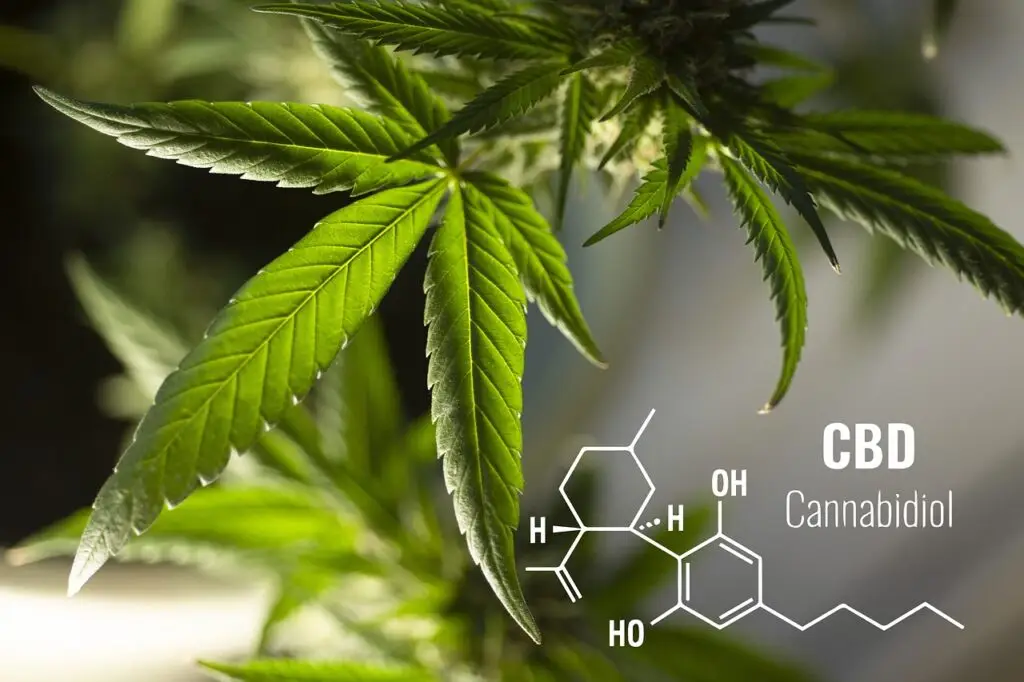
What is CBD?
Cannabidiol, commonly known as CBD, is a naturally occurring compound found in the hemp plant, a member of the Cannabis sativa species. Unlike its more infamous counterpart, tetrahydrocannabinol (THC), CBD is non-psychoactive, meaning it does not produce the “high” typically associated with cannabis use.
This characteristic has made CBD widely appealing for those seeking the therapeutic benefits of cannabis without the mind-altering effects. CBD is available in various forms, including oils, capsules, edibles, and topical applications, catering to different preferences and needs.
The extraction of CBD from hemp involves the use of industrial processes to isolate the compound while leaving behind most of the other cannabinoids, including THC.
As a result, products derived from hemp must contain less than 0.3% THC to comply with federal regulations in many countries, including the United States.
This legal distinction has helped promote the availability of CBD in mainstream markets. However, it is essential for consumers to understand that the regulatory framework surrounding CBD can vary significantly from region to region, impacting its legality and market availability.
Despite its burgeoning popularity, misconceptions persist regarding CBD, particularly regarding its psychoactive properties. Many consumers mistakenly equate CBD with THC, assuming that all cannabis-derived compounds exert similar effects.
In reality, while CBD and THC share some similarities, their effects on the body and mind differ widely.
Furthermore, CBD has been researched for its potential benefits in managing pain, anxiety, and various other health conditions, leading to a growing interest in its potential applications for mental well-being and pain management.
As with any supplement, careful consideration and further research are vital for understanding the implications of using CBD.
CBD for Pain Management

CBD, or cannabidiol, has emerged as a compelling alternative for individuals seeking relief from chronic pain. Interacting with the body’s endocannabinoid system (ECS), CBD influences various physiological processes, including pain perception.
The ECS plays a crucial role in maintaining homeostasis, regulating functions such as mood, sleep, and immune response. Research indicates that CBD binds to cannabinoid receptors, particularly CB1 and CB2, thereby modulating pain signaling pathways which may lead to reduced pain sensations.
Numerous scientific studies have explored the potential of CBD for various types of pain conditions. For example, a 2018 review published in the journal Frontiers in Pharmacology suggests that CBD can effectively manage chronic pain in conditions like arthritis and fibromyalgia. The review highlighted how CBD’s anti-inflammatory properties contribute to alleviating pain, making it a suitable option for individuals suffering from these debilitating conditions.
Additionally, anecdotal evidence from patients suggest that CBD has significantly lessened headaches and migraines, providing them with a greater quality of life when traditional treatments failed.
When considering using CBD for pain relief, it is important to note that there are several application methods and dosages that may be effective. CBD oil, edibles, topical creams, and capsules are popular choices. Starting with a low dosage, often around 10-20 milligrams, may help gauge the individual’s response.
Gradually increasing the dosage can assist in finding an optimal level that effectively alleviates pain. Topical applications provide targeted relief and may be preferred for localized pain areas, while oils and edibles offer systemic benefits. Consulting a healthcare professional is advisable to ensure safe and effective use tailored to individual needs.
CBD and Mental Health: Managing Anxiety and Stress

Cannabidiol (CBD), a non-psychoactive compound derived from the cannabis plant, has garnered significant attention in recent years for its potential benefits in managing mental health issues, particularly anxiety and stress.
Numerous studies indicate that CBD may alleviate anxiety symptoms by interacting with the endocannabinoid system, which plays a crucial role in regulating mood and emotional responses. Unlike traditional pharmacological treatments that often come with undesirable side effects, CBD offers a more favorable profile, presenting a potential alternative for individuals seeking relief from anxiety disorders.
Research findings suggest that CBD can reduce anxiety in various contexts, including social anxiety disorder, generalized anxiety disorder, and post-traumatic stress disorder (PTSD). In a study published in the Journal of Psychopharmacology, participants who received CBD demonstrated a significant decrease in anxiety levels during public speaking tasks compared to those who were administered a placebo. This evidence points to CBD’s capacity to instill a sense of calm, especially in high-stress scenarios.
Furthermore, CBD’s anxiolytic properties extend beyond mere symptom management. By facilitating better sleep and improving overall emotional resilience, individuals may find that their response to stressors diminishes over time.
CBD oil can be seamlessly integrated into daily routines. Users often report positive experiences when taking CBD tinctures, capsules, or even edibles, typically starting at low doses to gauge individual tolerance. Additionally, incorporating CBD into mindfulness practices, such as meditation or yoga, may enhance the overall calming effect.
As interest in CBD grows, individuals facing anxiety and stress should consult medical professionals to explore appropriate dosages and forms of delivery that align with their specific mental health needs. Ongoing research continues to shed light on the multifaceted role of CBD in promoting mental well-being, making it a promising area for future exploration.
Other Important Facts about CBD:

As the popularity of CBD continues to grow, it is essential to understand its safety, potential side effects, and interactions with other medications. Although CBD is generally considered safe for most users, it can cause mild side effects in some individuals.
These may include fatigue, diarrhea, changes in appetite, and dry mouth. It is crucial to consult with a healthcare professional before integrating CBD into your wellness routine, especially if you are already taking other medications. This is due to the potential for CBD to interact with certain pharmaceutical drugs by affecting how they are metabolized in the body.
CBD is also known to modulate the effects of THC, potentially reducing the intensity of THC’s psychoactive “high”. This interaction influences the overall experience of consuming cannabis products, with effects varying based on the specific cultivar (strain) and its cannabinoid profile.
The ratio of CBD to THC in cannabis flowers or manufactured products can significantly alter the user’s experience, depending on the relative percentages or milligram dosages of each cannabinoid. For example, products with higher CBD content may produce less intense psychoactive effects while potentially enhancing other therapeutic benefits.
When selecting a CBD product, sourcing high-quality items is vital. The lack of regulation in the CBD industry can lead to the sale of products that may contain harmful adulterants or inaccurate labeling regarding their cannabinoid content.
When assessing a product, look for third-party lab testing results and clear ingredient lists. A reputable manufacturer will provide transparency about their sourcing and production processes, ensuring that consumers can trust the purity and potency of the products. Certifications such as USDA Organic or Good Manufacturing Practices (GMP) can be indicators of product quality.
The future of CBD research holds promise, as scientists continue to explore its applications across various therapeutic fields. Current studies are investigating its potential for treating conditions such as epilepsy, anxiety disorders, and chronic pain.
As research progresses, regulations surrounding CBD are likely to evolve, further establishing guidelines for its safe and effective use.
The continued exploration of CBD may lead to innovative treatment options, ultimately enhancing its role in pain management and mental well-being.
As evidence accumulates, greater understanding will emerge regarding how CBD can fit into comprehensive treatment plans for various health issues.

